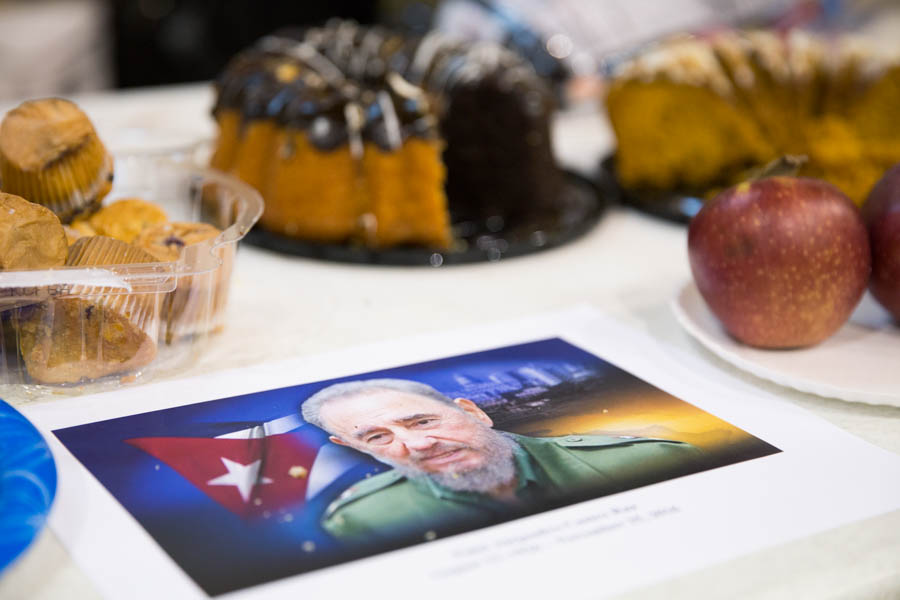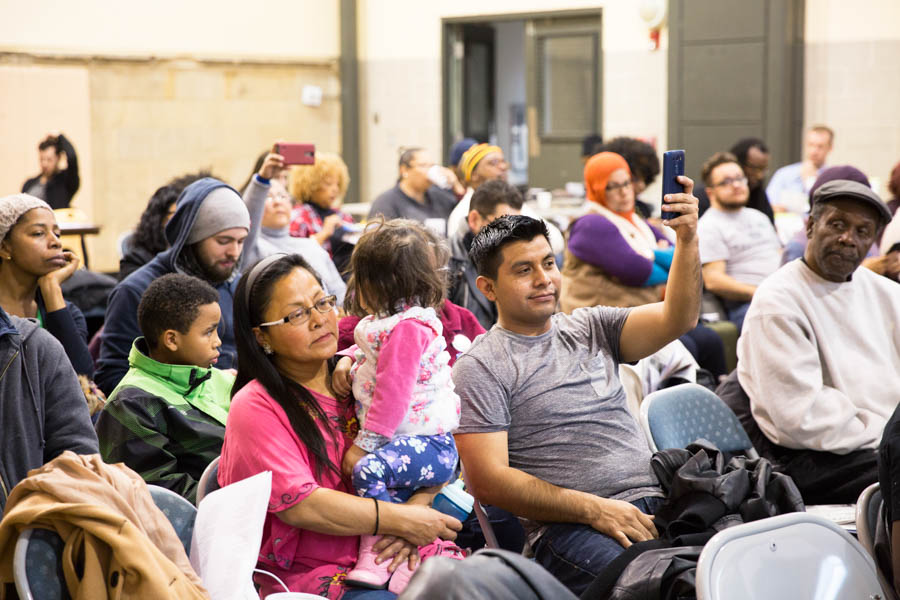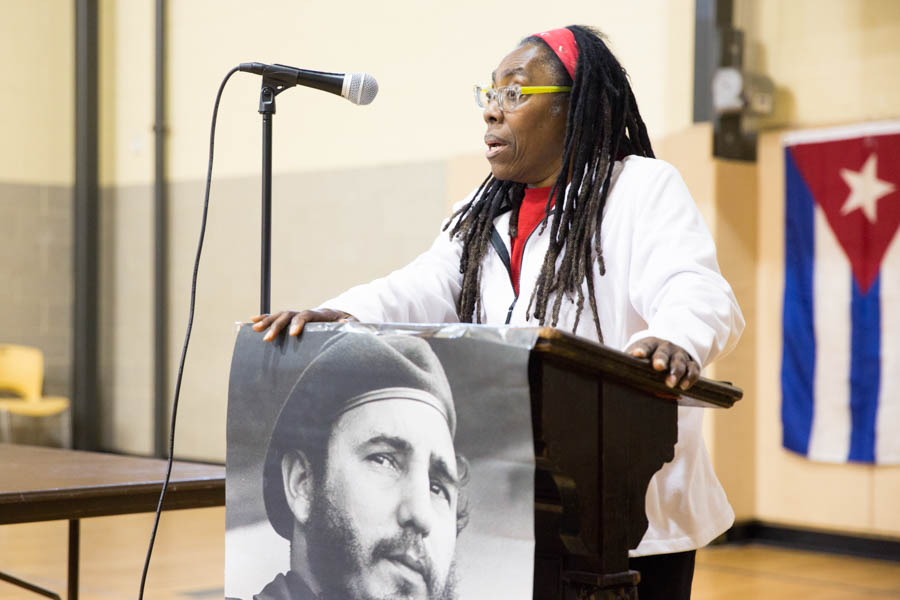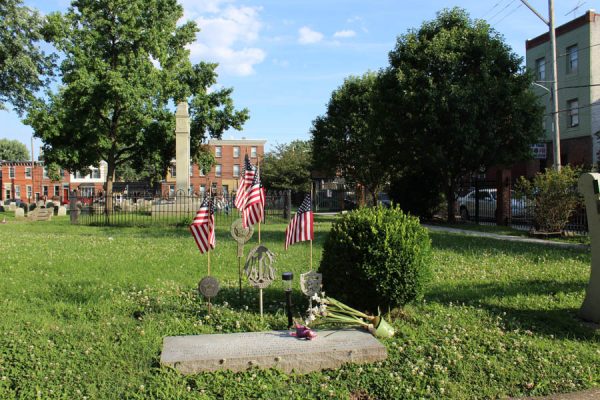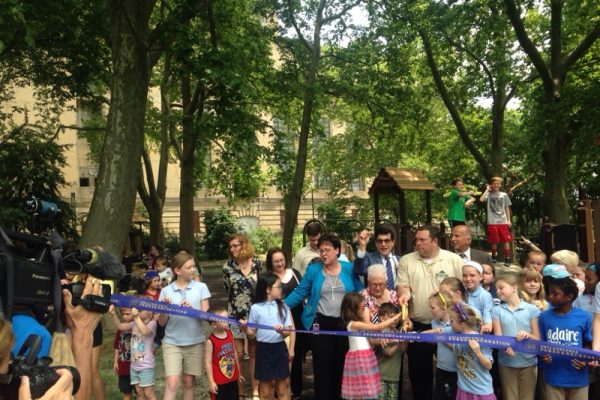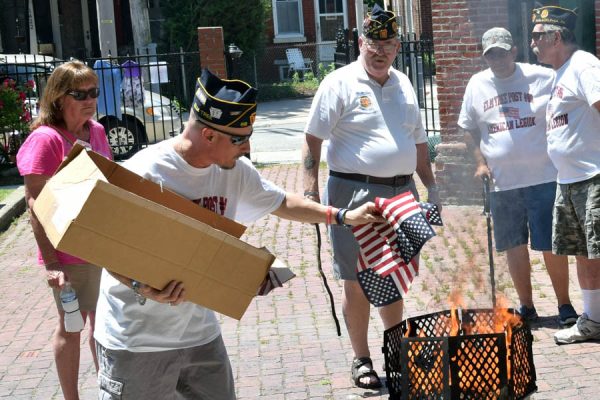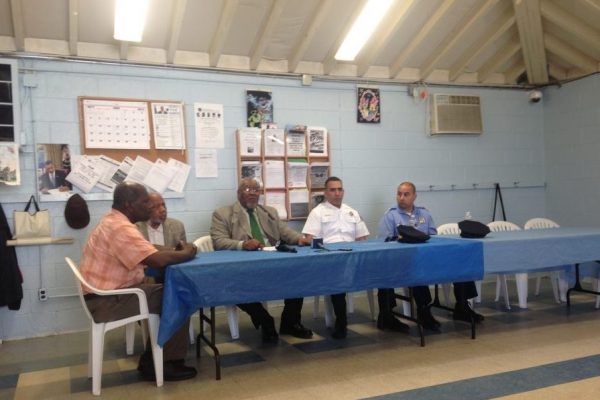“Viva Fidel!”: The Church of the Advocate Hosts Tribute to Deceased Cuban Revolutionary
Chants of “Viva Fidel!” rang out in the gymnasium of the Church of the Advocate at 1801 Diamond St. this past Saturday at a tribute event for deceased Cuban leader, Fidel Castro.
At least 40 people turned up to honor and pay respects to Castro with spoken word poetry, impassioned speeches and music.
Various local organizations came out to table at the church including the Green Party of Philadelphia, the MOVE organization, the All-African People’s Revolutionary Party, the Workers World Party of Philadelphia and the Party for Socialism and Liberation.
Those paying tribute voiced their discontent at the way US media regularly portrays Castro as a dictator rather than as a revolutionary hero.
“We are all inspired by the revolutionary legacy of Fidel Castro,” said Walter Smolarek, a member of the Party for Socialism and Liberation.
Smolarek believes that all people can learn from the example of Castro’s commitment to Cuban people. He disagrees with the way American media portrays Castro and claims it is different from the way the rest of the world views the late Communist leader.
“I think it’s completely ridiculous how he’s portrayed in the US media,” Smolarek said. “It’s out of step with how the rest of the world sees the Cuban revolution.”
Other countries appreciate the solidarity that the Cuban Revolution inspired among its people, Smolarek added.
The All-African People’s Revolutionary Party supports Castro because he helped liberate many regions of Africa, said Yero Okite, a central committee member of the party.
Okite, who has been a member of the party since 1976, praised Castro for opening doors to African-American people who were heavily targeted in acts of racial violence.
“When African people in this country were in trouble here Cuba opened arms to them,” Okite said.
He mentioned Assata Shakur, aunt of the late rapper Tupac Shakur, who currently lives in exile in Cuba.
Kareem, a member of the MOVE organization, said the US never liked Castro.
“Fidel Castro’s my man,” Kareem said.
Now that the former Cuban leader is dead, he wants to know where his brother, Raul Castro, stands.
Shani Akilah, one of the speakers with the Black and Brown Workers’ Collective, is descended from Haitians and spoke about what Castro meant to Haiti.
Akilah said this question was important to her because he grandfather left Cuba to live in Haiti. While there, he built a school and married Akilah’s grandmother.
In Haiti, Akilah’s grandfather was targeted because the people thought he was communist.
“This is a time to call on every part of our beings, spiritual and all, so that we have everything we need to dismantle the system of white supremacy,” Akilah concluded.
Minister of Communication for the MOVE organization, Ramona Africa, challenged the audience to emulate Castro in their daily lives.
“Don’t just spout out words of respect for Fidel,” Africa said. “Follow his example. Don’t take the tyrant of this country laying down.”
She said the MOVE organization knows what it is like to be oppressed and to need to fight an abusive government. As the sole adult survivor of the 1985 government bombing of the MOVE house in West Philadelphia, she witnessed her family being killed by an oppressive system firsthand.
Castro stood in solidarity with Chile and other South American countries, as Karla Martin, an organizer with the Party for Socialism and Liberation, discussed.
“He helped comrades in Chile by contributing weapons to the revolutionaries,” Martin said. “Fidel was the architect of a revolutionary society.”
Gail Walker, the Executive Director of the Interreligious Foundation for Community Organization, spoke about the contributions to education that Castro made to Cuba.
One major contribution Castro made to education in Cuba was the scholarship fund for youth from underserved US communities to attend the Latin American School of Medicine (ELAM) in Havana, Cuba. The school was built on the site of an old naval academy, Walker said.
Currently, 143 graduates from ELAM live in the US, and 100 more are expected to graduate this year, Walker said.
Walker’s organization has been in constant solidarity with Cuba since the 1960s and has organized thousands of trips to Cuba in violation of the US embargo. She also spoke of the risks that come with such solidarity.
“We have been under siege by the US government for the work we’ve been doing these 50 years,” Walker said. “The Internal Revenue Service stripped us of our non-profit status. But still we rise.” •
